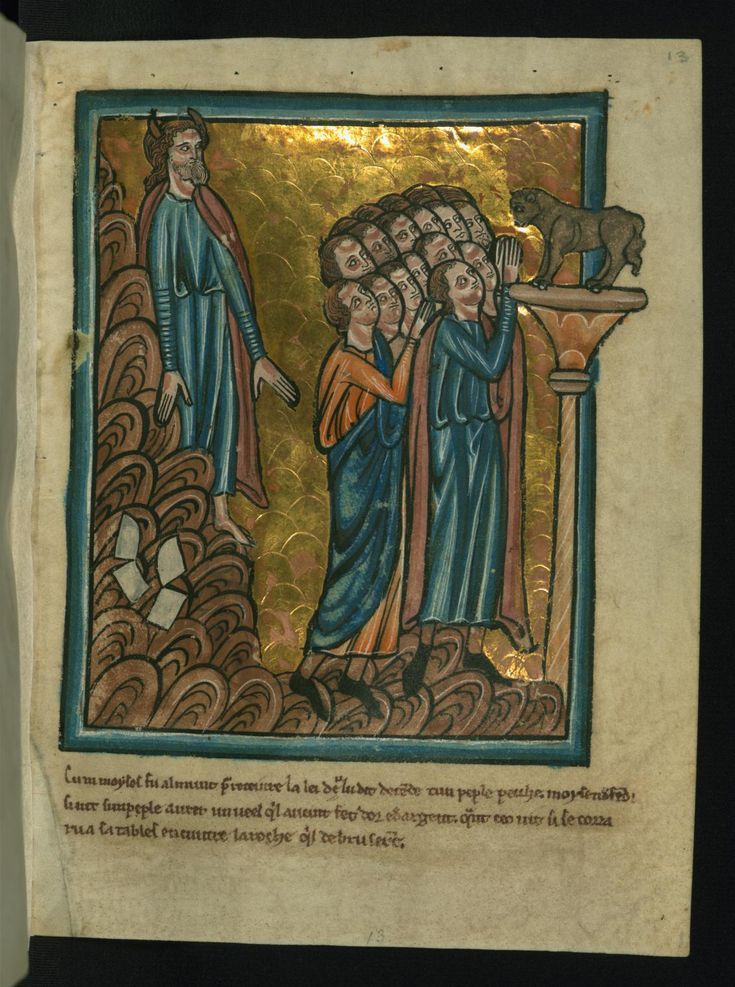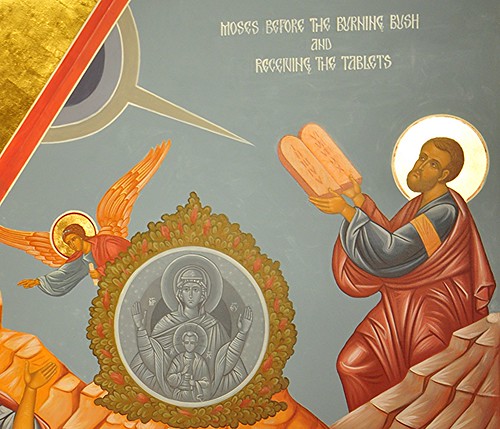
Aaron made a golden calf for the Hebrews to worship when Moses disappeared for six weeks high atop Mt. Sinai. What was he thinking?!
Aaron probably did not think of the golden calf as an “idol,” per se. Often, the image of a calf or bull was thought to be the throne of a god; the god was seated in the empty space between the horns of the animal. When God gave directions for making the ark of the covenant, he promised that his glory would dwell atop the ark, between the two cherubim at each end of the ark’s lid; this was a very similar idea to what Aaron probably thought he was doing. He was making a throne for God, whom his brother Moses had gone up the mountain to meet.
Why a calf rather than a bull? A calf—a young cow—might have reminded Aaron of Hathor, the goddess of Egypt who was a maternal figure, nurturing and sustaining the people. She fed the people, much as God fed the Hebrews with quail and manna. She helped people cross from life to death, not so unlike the Lord delivering the Hebrews through the Red Sea. (Hathor was the great Mother before Isis was.) She was also associated with the land of Canaan—exactly the place the Hebrews hoped to journey to through the wilderness. Maybe Aaron thought that Hathor’s cow horns would be an appropriate throne for the God of Israel.
This might explain what Aaron did but does it excuse what he did? Although he made the calf, he was not subjected to the consequences and punishment for worshiping the calf—he was not forced to drink the gold dust water and he was not killed by the Levites when Moses came back to the Hebrew camp. So Moses might have understood Aaron’s motivation although disagreeing with his brother’s behavior.
How do we make a golden calf for ourselves? How do our motives seem reasonable though our actions are not? How do we accidentally make idols for ourselves or others? Anytime we let something—even a good thing, such as providing for our families—become the most important thing in our lives, we have constructed an idol. We make a throne for God in our hearts but then the throne itself is mistaken for the One who is enthroned.

